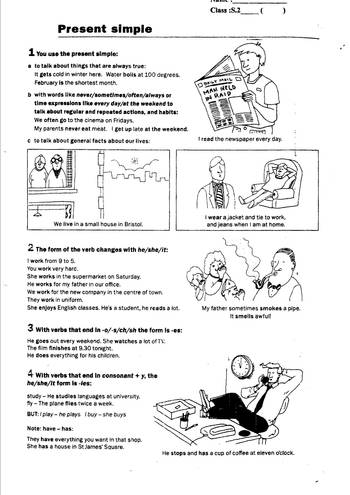The simple present
1. With dynamic verbs, this tense expresses:
- habitual or repetitive activity Shee drinks tea for breakfast every day
- ‘timeless truths or facts’:; Water boils at 100 Celsius.
- In commentaries, demonstrations, and performatives, it serves to report events simultaneous with the speech event: He passes the ball to Smith, and Smith scores; I take three eggs and beat them in this basin; I name this ship ‘Fearless’.
2. With static verbs, it refers to
- a present or timeless state: It contains sugar; Air consists of oxygen and other gases.
3. With private verbs (of sensation, mental processes, etc.) it expresses how things are: I smell something burning; I think he'll come.
4. In statements about the future, it shows that events have been arranged (time-table future): The train leaves at 6.
5. In literature and conversation, as the historic present, it reports past events dramatically and dynamically: He comes up to me and says …
6. With verbs of communication, it states or informs: The Bible says …; John tells me that he is going to Spain.

